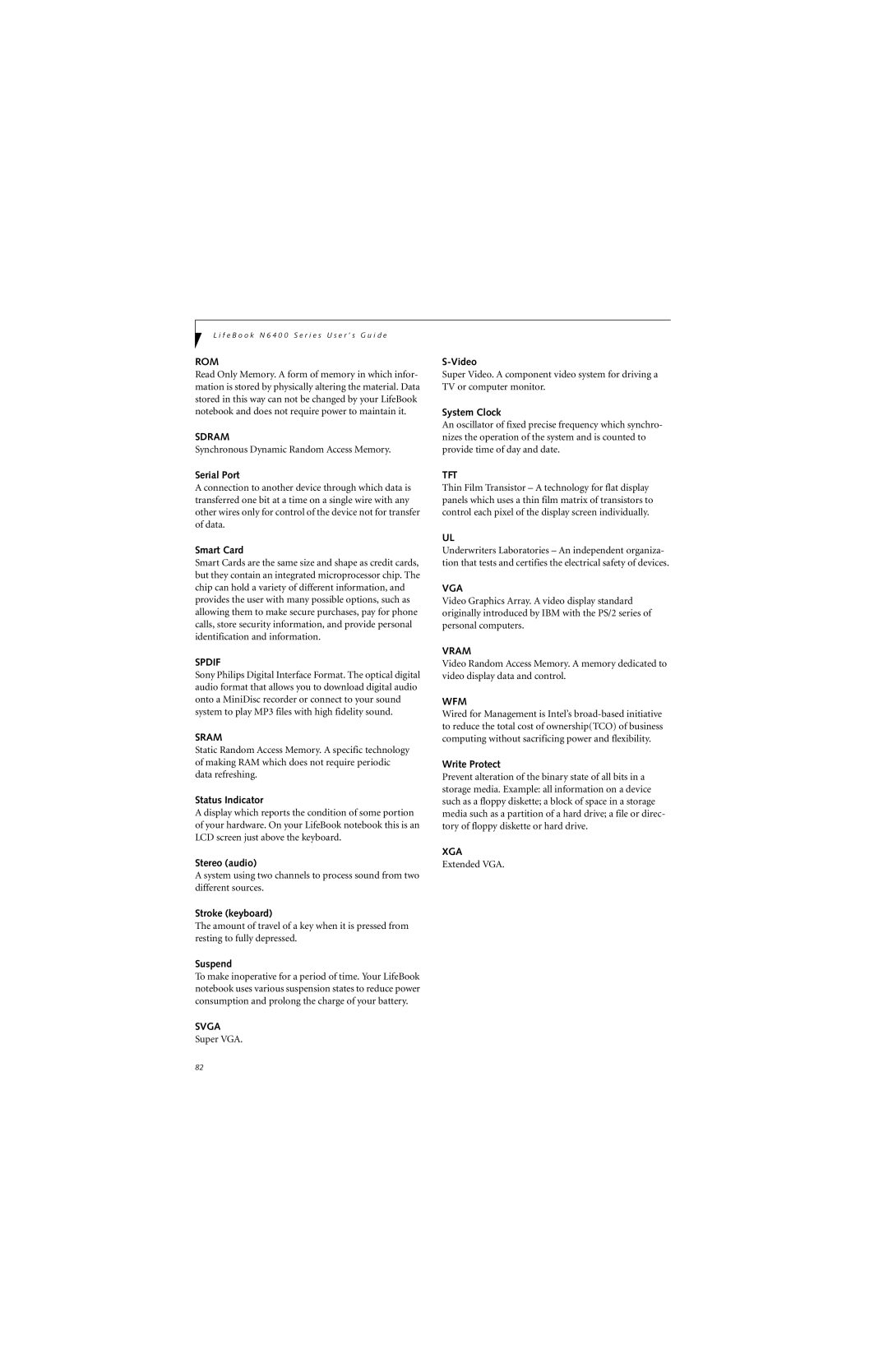L i f e B o o k N 6 4 0 0 S e r i e s U s e r ’ s G u i d e
ROM
Read Only Memory. A form of memory in which infor- mation is stored by physically altering the material. Data stored in this way can not be changed by your LifeBook notebook and does not require power to maintain it.
SDRAM
Synchronous Dynamic Random Access Memory.
Serial Port
A connection to another device through which data is transferred one bit at a time on a single wire with any other wires only for control of the device not for transfer of data.
Smart Card
Smart Cards are the same size and shape as credit cards, but they contain an integrated microprocessor chip. The chip can hold a variety of different information, and provides the user with many possible options, such as allowing them to make secure purchases, pay for phone calls, store security information, and provide personal identification and information.
SPDIF
Sony Philips Digital Interface Format. The optical digital audio format that allows you to download digital audio onto a MiniDisc recorder or connect to your sound system to play MP3 files with high fidelity sound.
SRAM
Static Random Access Memory. A specific technology of making RAM which does not require periodic data refreshing.
Status Indicator
A display which reports the condition of some portion of your hardware. On your LifeBook notebook this is an LCD screen just above the keyboard.
Stereo (audio)
A system using two channels to process sound from two different sources.
Stroke (keyboard)
The amount of travel of a key when it is pressed from resting to fully depressed.
Suspend
To make inoperative for a period of time. Your LifeBook notebook uses various suspension states to reduce power consumption and prolong the charge of your battery.
SVGA
Super VGA.
S-Video
Super Video. A component video system for driving a TV or computer monitor.
System Clock
An oscillator of fixed precise frequency which synchro- nizes the operation of the system and is counted to provide time of day and date.
TFT
Thin Film Transistor – A technology for flat display panels which uses a thin film matrix of transistors to control each pixel of the display screen individually.
UL
Underwriters Laboratories – An independent organiza- tion that tests and certifies the electrical safety of devices.
VGA
Video Graphics Array. A video display standard originally introduced by IBM with the PS/2 series of personal computers.
VRAM
Video Random Access Memory. A memory dedicated to video display data and control.
WFM
Wired for Management is Intel’s
Write Protect
Prevent alteration of the binary state of all bits in a storage media. Example: all information on a device such as a floppy diskette; a block of space in a storage media such as a partition of a hard drive; a file or direc- tory of floppy diskette or hard drive.
XGA
Extended VGA.
82
